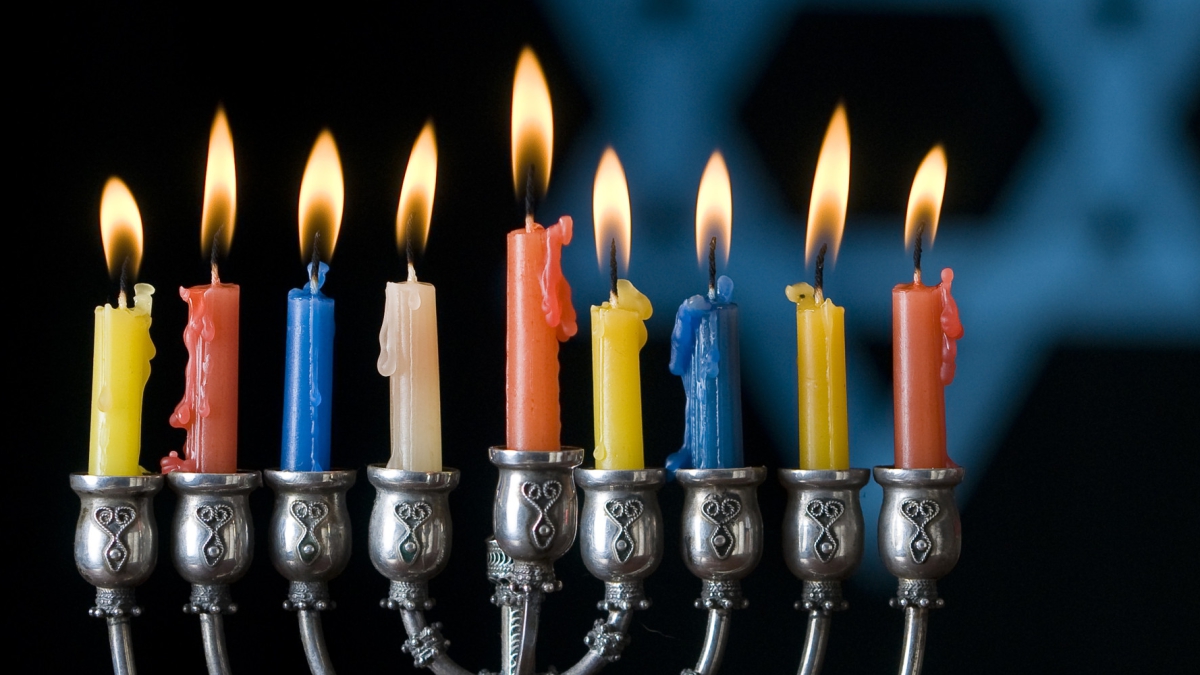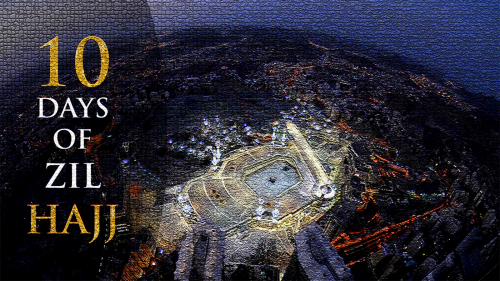Hanukah and Religious Revival

When Jews celebrate Hanukah (this year December 10-18, 2020), I hope that both Jews and Muslims will also remember all oppressed religious communities, such as the Rohingya people of Myanmar and the Uyghurs in China's Xinjiang Province, because Hanukah teaches the very important lesson that faith and hope in the long run overcome nasty politics and politicians.
Hanukah should be a special festival for Muslims and Jews because Hanukah (Hebrew for Dedication) refers both to: The rededication of the ancient Temple in Jerusalem after it was profaned in 168 BCE by an idol installed in it by the Syrian Greek king Antiochus IV; and the dedication and valor of all those who joined in the resistance to the attempt by the political ruling powers to force the Jews to abandon their God given religion, and conform to Greek forms of worship and culture. Abandoning circumcision was one example.
Those who resisted were Muslims (Arabic for faithful followers of the one and only God's will) and their dedication eventually led to religious freedom and national independence for the Jews living in the Land of Israel.
Indeed Muslims, and all lovers of democracy today, should celebrate the good news in the Council on American-Islamic Relations (CAIR) report that a total of 170 American Muslim Candidates in 28 states and Washington D.C. ran for public office in 2020, the highest number ever recorded; and 62 were successfully elected to office. In comparison, 49 Muslim candidates were elected to public office in 2019, and 57 in 2018 (the previous high mark.)
The oppression of Judaism by Antiochus IV, the Syrian Greek king, was the first known attempt at suppressing a minority religion, but unfortunately not the last. Other well-known attempts were the three century long Roman persecution of Christianity, and the persecution of Prophet Muhammad and his followers by the great majority of the pagan Arabs in Makkah.
All three religions emerged from their varying periods of persecution stronger than ever, and this is the ongoing spiritual lesson of the Hanukah lamp that once lit by faithful believers, filled with hope and trust in God; lasts longer than anyone else thinks possible. The following is the history of Hanukah from the original sources:
“After King Seleucus died, Antiochus (who called himself Epiphanes-God manifested) became king. Jason became High Priest by corrupt means. He went to king Antiochus and offered him a large bribe (to be appointed High Priest) and an additional bribe for the authority to establish a (sports) stadium where young men could train; and to enroll the people (his supporters) in Jerusalem as citizens of Antioch. (2 Maccabees 4:7-9)"
“The king gave his approval, and as soon as Jason took over the office of High Priest, he made the people of Jerusalem change to the Greek way of life. He began by abolishing the favors that John had secured for the Jews from previous Syrian kings. Jason also did away with our Jewish customs and introduced new customs that were contrary to our Law."
“With great enthusiasm he built a stadium near the Temple hill and led our finest young men to adopt the Greek custom of participating in athletic events. Because of the unrivaled wickedness of Jason, that ungodly and illegitimate High Priest, the craze for the Greek way of life and for foreign customs reached such a point that even the priests lost all interest in their sacred duties."
“They lost interest in the Temple services and neglected the sacrifices. They would rush off to take part in the games that were forbidden by our Law. They did not care about anything their ancestors had valued; they prized only Greek honors. And this turned out to be the source of all their troubles, for the very people whose ways they admired and whose customs they tried to imitate became their enemies and oppressed them.” (2 Maccabees 4:10-16)
Things got worse when Menelaus offered the king an even larger bribe, and was appointed High Priest in place of Jason, who was forced to flee. “Menelaus stayed on in his position because of the greed of those in power. He grew more evil every day and became the worst enemy of his own people.” (2 Maccabees 4:50)
Then, when Antiochus was fighting a war against Egypt: “a false report began to spread that Antiochus had died” (5:5) and many Jews celebrated. “When the news of what had happened in Jerusalem reached Antiochus, he thought the whole country of Judea was in revolt, and he became as furious as a wild animal. So, he left Egypt and took Jerusalem by storm, giving his men orders to cut down without mercy everyone they met and to slaughter anyone they found hiding in the houses. They murdered everyone—men and women, boys and girls; even babies were butchered.” (2 Maccabees 5:11-13)
“But Antiochus was still not satisfied. He even dared to enter the holiest Temple in the world, guided by Menelaus, who had become a traitor both to his religion and to his people. With his filthy and unholy hands, Antiochus grabbed the sacred objects of worship, and the gifts which other kings had given to increase the glory and honor of the Temple. He was so thrilled with his conquest that he did not realize that the Lord had let his holy Temple be defiled because the sin of the people of Jerusalem had made him angry for a while."
“But the Lord did not choose his people for the sake of his Temple; he established his Temple for the sake of his people. So, the Temple shared in the people's suffering but also later shared in their prosperity. The Lord abandoned it when he became angry but restored it when his anger had cooled down. (2 Maccabees 5:15-20)"
“Not long after that, the king sent a governor to force the Jews to abandon their religion and the customs of their ancestors. He was also to defile their Temple by dedicating it to the Olympian god Zeus. The oppression was harsh and almost intolerable. Gentiles filled the Temple with drinking parties and all sorts of immorality. Forbidden objects were brought into the Temple, and the altar was covered with detestable sacrifices (pigs) prohibited by our Law."
“It was impossible to observe the Sabbath, to celebrate any of the traditional festivals, or even so much as to admit being a Jew. Each month when the king's birthday was celebrated, Jews were compelled by brute force to eat the intestines of sacrificial animals. Then, during the festival in honor of the wine god Dionysus, they were required to wear ivy wreaths on their heads and march in procession.
“For example, Philip was told that some Jews had gathered in a nearby cave to observe the Sabbath in secret. Philip attacked and burned them all alive. They had such respect for the Sabbath that they would not fight to defend themselves.” (2 Maccabees 6:1-11)
The success of the Maccabees in attaining religious freedom and political independence by defeating several Syrian Greek armies that were sent to suppress their rebellion; was two generations later, tragically transformed into a failure, when the Hasmonean dynasty they had established became politically corrupt and oppressive.
Thus, we learn the truth of the saying: Power tends to corrupt; absolute power corrupts absolutely. In today's world of fanaticism and extremism the words of Al-Ghazali, a 12th century Persian Muslim theologian, need to be repeated by all the world’s religious and political leaders: “Declare your jihad on thirteen enemies you cannot see - Egoism, Arrogance, Conceit, Selfishness, Greed, Lust, Intolerance, Anger, Lying, Cheating, Gossiping and Slandering. If you can master and destroy them, then you will be ready to fight the enemy you can see.”
I conclude with a future vision of peace and brotherhood. Although politicalized religious leaders on both sides have turned sacred sites in both India and Israel into battlegrounds for their brand of religious exclusivity, an ancient Jewish legend predicts that when the Messiah comes and resurrection day occurs; the Kaab’a in Mecca, will visit its younger brother, the Temple Mount in Jerusalem, bringing with it the inhabitants of Mecca, and they shall both be joined together.
And when the Temple Mount sees the Kaab’a approaching, it shall hail the Kaab’a: "Peace be to the great guest”. ( Zev Vilnay, Legends of Jerusalem)
Allen S. Maller is an ordained Reform Rabbi who retired in 2006 after 39 years as the Rabbi of Temple Akiba in Culver City, California. His web site is: www.rabbimaller.com. He blogs on the Times of Israel. Rabbi Maller has published 400+ articles in some two dozen different Christian, Jewish, and Muslim magazines and web sites. He is the author of: "Judaism and Islam as Synergistic Monotheisms”

















